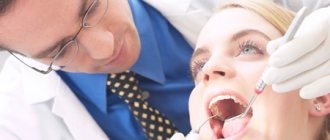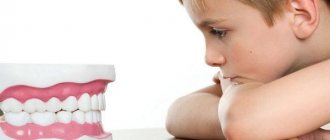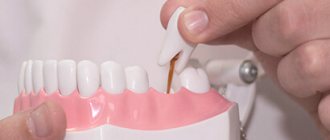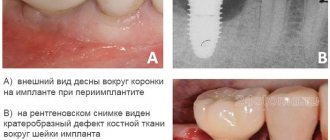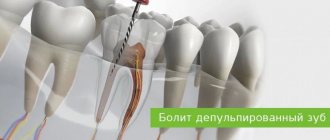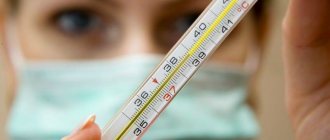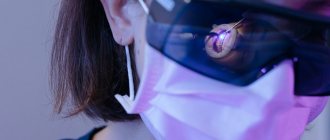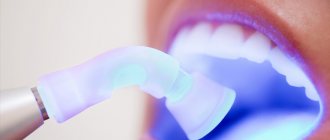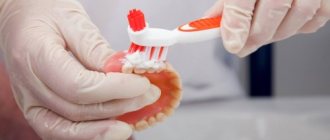During breastfeeding, many women experience dental problems. Most often, caries, inflammation and bleeding of the gums, and mobility of dental elements are observed. The cause of the disease lies in calcium deficiency in the body and decreased immunity, which is often observed during pregnancy and lactation.
Is it possible to treat teeth while breastfeeding?
But often a nursing woman puts off a visit to the dentist, fearing that the treatment may harm the baby. In fact, a nursing mother should visit the dentist even more often than usual.
What are the dangers of dental problems for a nursing mother?
Caries and inflamed gums in the mother's mouth are a dangerous source of infection for the child. When you try your baby's food, kiss and hug him, bacteria enter the baby's mouth and can cause the development of stomatitis.
Stomatitis in a baby
A constantly aching tooth often becomes the cause of psycho-emotional stress and bad mood, as well as lack of sleep. The result of chronic toothache is likely to be a decrease in the amount of milk, up to complete disappearance.
Due to constant toothache, milk may disappear
How to care for your teeth during pregnancy?
In the early stages of pregnancy, the best protection for teeth is careful care and the use of toothpastes containing fluoride. Choose toothpastes without whitening effect. We also recommend contacting the clinic at the first appearance of toothache. We remind you that a mother’s bad teeth threaten her child:
- infection (pathogenic microorganisms cause complications in the development and formation of the fetus),
- hypoxia (periodontal damage leads to intoxication and inflammation).
For the health of the unborn child, it is necessary to maintain good oral health of the mother.
First aid for toothache
Acute toothache should be relieved as soon as possible, without waiting for a visit to the dentist. You can take one of the drugs based on paracetamol or ibuprofen without harm to the baby. One of these medications should always be in your medicine cabinet.
| Active substance | Name of medicine | Note |
| Paracetamol | “Panadol”, “Efferalgan” and others. | A small amount of paracetamol is observed in breast milk, with the maximum concentration observed after 15-60 minutes. |
| Ibuprofen | “Ibufen”, “Nurofen” and others. | The best option is to take Ibuprofen immediately after feeding. But this drug passes into breast milk in extremely small quantities. |
The most effective option is ibuprofen and its derivatives. Compared to paracetamol, it relieves pain better.
Important! Do not take painkillers or antipyretics without reading the composition of the medication and the instructions for its use. The best option would be to consult a pediatrician.
Read the leaflet for the drug
Analgin and its derivatives should absolutely not be taken to relieve painful and uncomfortable sensations:
- "Analdim";
- "Tempalgin";
- "Sedalgin";
- "Pentalgin" etc.
If it is necessary to use the drug during lactation, you must stop breastfeeding
All of the above medications through milk have a negative effect on the internal organs and systems of the baby.
- Anesthesia in dentistry during breastfeeding
How are teeth treated during pregnancy?
During treatment, hypoallergenic anesthetics with the lowest adrenaline content are used as pain relief, which is absolutely harmless for the expectant mother and her child.
Note! At the dentist's appointment, you need to provide comprehensive information about the progress of your pregnancy, the medications you took/are taking, and tell about all the problems of the oral cavity.
During the consultation, the specialist will examine your oral cavity, listen to you carefully and draw up a treatment plan. Is it possible to take x-rays during pregnancy?
X-rays are allowed to be taken only after the 12th week of pregnancy. If an x-ray is necessary, the patient is covered with a lead blanket, the exposure is determined and all necessary photographs are taken simultaneously.
“Podmoskovye” is equipped with a new generation X-ray machine with microdoses that are close to the normal background radiation.
How much does dental treatment cost during pregnancy?
The cost of dental treatment depends on many factors. Without knowing your diagnosis, we cannot name the price of treatment. You can find out the cost by visiting the clinic. At the first consultation, our dentist will examine the oral cavity, make a diagnosis, write out a treatment plan and name the exact price of treatment.
One thing we can say right away: prices in “Moscow Region” are fair and understandable
Pain relief during treatment
At any age of the child, you can easily treat caries and gum disease. But you must tell the dentist at your first visit that you are feeding your baby. Then the doctor will select safe medications.
Don't forget to tell your dentist that you are breastfeeding your baby.
Most local anesthesia is short-acting. This means that it circulates in the blood for a short time.
During lactation, dentists recommend using:
- "Lidocaine";
- "Ultracaine".
"Lidocaine"
"Ultracain DS"
Important! Both drugs are eliminated from the body within three to six hours, depending on the dose. Therefore, it is recommended to feed your baby immediately before visiting the dentist and stock up on a portion of breast milk in advance for the next feeding. Once you return, you need to express and discard the milk. And the next milk will be completely safe for the baby.
You need to stock up on breast milk before visiting the dentist
Preparation for surgical treatment
- Stages of tooth extraction in a nursing mother
- The procedure for tooth extraction in a nursing woman includes:
- taking anamnesis;
- determination of indications for surgery;
- preparing the patient;
- tooth extraction;
- postoperative period.
In 90% of cases, an X-ray examination is performed before surgery. The procedure is safe for nursing mothers, since the woman is wearing a lead apron through which radiation does not pass. But it is still advisable to express milk after the examination. Then you can feed the baby without fear.
Preparation consists of eliminating the fear of manipulation and the dentist; for this purpose it is not prohibited to use sedatives. After the operation, you cannot feed the child for 2 to 6 hours: this is the period required to remove the painkiller from the body. To provide the baby with nutrition during this time, it is worth expressing milk and feeding the baby more strongly before surgery.
What to do if potent drugs are prescribed?
When taking strong medications that should not get into the child's hands, you can feed the baby one of the milk formulas according to age. And in order not to interrupt the production of your own milk, you need to express at least six times a day.
Expressing milk while taking potent medications will help maintain lactation
Do you absolutely not want to transfer your child to artificial feeding? Then ask your doctor to postpone treatment for a while. During this time, accumulate the required amount of your own frozen milk.
Frozen breast milk
Please note that in the arsenal of modern pharmacology there are antibiotics that are approved for feeding. But even an approved drug is best taken so that there is a maximum gap in feeding after taking it.
| Antibiotic group | Note |
| Penicillins | Penicillins enter breast milk in low concentrations. But they can cause allergic reactions and loose stools. If allergic dermatitis is present, it is worth switching the child to formula. |
| Cephalosporins | Almost does not pass into breast milk and does not affect the health and development of the child. |
| Macrolides | They get into milk, but do not have a negative effect on the baby. Prescribed for allergies to penicillin and cephalosporin drugs. |
Recommendations for the recovery period
In order to avoid complications after surgery, you need to follow all the doctor's advice. After the procedure, the doctor applies a cotton swab to stop the bleeding. It should be held for no more than 10 minutes, otherwise the blood clot will dry out and come off along with the cotton wool. With high blood pressure, bleeding continues for a longer time, so the tampon can be kept in place for 15 - 20 minutes.
In the first days you cannot:
- overheat the body, apply warming compresses;
- engage in heavy physical labor and sports;
- lick a blood clot;
- eat hot, spicy, rough food;
- drink through a straw;
- smoke;
- touch the socket with a toothbrush and other objects.
You are allowed to eat after 3-4 hours. The issue of feeding a child should be discussed with a doctor. Local anesthetics practically do not enter the blood, and components penetrate into mother's milk in minimal quantities. If the doctor has not prescribed other medications, then you can feed the baby within a few hours.
After the anesthetic wears off, pain appears. Possible increase in body temperature. To relieve acute symptoms, you can take Paracetamol, Ibuprofen, Naproxen. You can reduce pain and swelling by using cold compresses.
Rinsing your mouth and brushing your teeth is allowed on the second day. For rinsing, pharmaceutical preparations are used: Romazulan, Chlorhexidine, Miramestin. They will prevent the development of infection and inflammation. You can rinse your mouth with an aqueous solution of baking soda and salt. To improve the healing of damaged tissue, decoctions of oak bark, chamomile, and calendula are used.
Dental procedures during lactation
X-ray
To develop a treatment plan, you may be prescribed an x-ray. This procedure is carried out using digital equipment with a minimal dose of radiation, and you will be wearing a protective apron while the device is operating. The photograph taken will allow you to assess the condition of the roots and canals, so do not refuse to undergo an x-ray.
X-ray
Instead of an x-ray, you can undergo a visiography procedure. In this procedure, radiation exposure falls only on the diseased tooth, and no dangerous radiation reaches the body. And the radiation dose is much lower than with digital x-rays.
- Suppositories for hemorrhoids during breastfeeding for effective treatment
Visiography of teeth
Doctors recommend expressing after an x-ray and not using this milk. Sometimes women complain of a decrease in milk production after an x-ray, but after a short period everything is restored.
Video: X-ray and fluorography during breastfeeding
Removal of decayed teeth and roots
In some advanced cases, the destroyed element of the dental system cannot be saved and must be removed. Uncomplicated tooth extraction is performed under local anesthesia; these drugs quickly stop circulating in the bloodstream. It is necessary to follow the same rules as when treating teeth with local anesthetics.
Removing a tooth root using forceps
In advanced situations, gumboil may develop - purulent inflammation of the bone tissue near the diseased tooth.
Flux
Then, after tooth extraction, the doctor will definitely prescribe antibiotic therapy. If drugs that are compatible with lactation are chosen, you can continue to feed the baby. Otherwise, the child is temporarily transferred to formula and milk is expressed while taking antibiotics in order to maintain lactation.
Prosthetics on implants
Photo of fixed prosthetics on implants
Dental implantation cannot be performed during lactation. This applies to both one-stage and two-stage implantation methods. The fact is that after implantation, a number of medications are prescribed that are incompatible with breastfeeding. In addition, during lactation, artificial roots may take root poorly. Therefore, implantation should be postponed until the end of breastfeeding; if necessary, temporary crowns can be installed.
Temporary crowns
Installation of braces
Orthodontists do not recommend installing braces or correcting the bite until lactation is complete. This is due to the fact that during lactation it is impossible to put additional stress on the bone tissue of the jaw, which lacks calcium. It is recommended to carry out treatment with braces no earlier than 6 months after the end of breastfeeding.
Installation of braces
Teeth whitening
You will have to refrain from teeth whitening using professional equipment during breastfeeding. For these purposes, a nursing mother can only use pastes, gels or chewing gum.
Whitening toothpaste
The fact is that during teeth whitening using professional equipment, the dye is removed from the tooth enamel and after whitening, rehabilitation is necessary with the use of medications that promote the mineralization of tooth enamel. During breastfeeding, the rehabilitation period takes a longer time and may be accompanied by the development of caries due to a lack of calcium ions.
- Ascorutin during breastfeeding
Video: Teeth whitening while breastfeeding
Dentistry for pregnant women
During pregnancy, a woman’s body is rebuilt, accumulating strength for the birth of a child. Visiting dental clinics and dental treatment during the nine most important months in the life of an expectant mother is necessary because:
- Infection in the mouth can lead to infection of the fetus,
- Toothache is a stress not only for the mother’s body, but also for the child’s developing body,
- During pregnancy, mineral reserves are depleted and hormonal levels change, which contributes to the appearance of problems in the oral cavity.
- In pregnant women, saliva loses its disinfecting ability, which leads to the proliferation of pathogenic microbes in the mouth, and changes in the pH level of saliva destroy tooth enamel.
Note! A lack of calcium, mainly in the second and third trimester, can destroy even the healthiest teeth.
Recommendations for pregnant women from our dentists
There are a number of reasons why you should visit a dental clinic during pregnancy:
- Caries. The only limitation in treating this disease is the use of arsenic. Regarding fillings, there are no contraindications. You can choose filling materials, including light-curing fillings.
- Gingitis (enlarged gums that occurs due to hormonal imbalance). With this disease, the expectant mother cannot independently provide thorough oral care. Self-treatment of gingitis most often leads to complicated periodontitis. Visiting a dental clinic will relieve you of pain and, most importantly, protect the fetus from exposure to toxins.
- Stomatitis (small ulcerative lesions in the oral cavity). In this case, you also need to contact a specialist. The doctor will select the appropriate spray for you, which will be safe for the child and relieve you of swelling and pain.
- Dental stones. It’s easy to get rid of plaque and stones in the Moscow Region. This procedure does not require the use of painkillers: it is performed using ultrasound and special instruments. It is necessary to remove tartar, as they cause bleeding from the gums and contribute to the proliferation of pathogenic microflora in the oral cavity.
Note! Treating any disease at an early stage is much faster and cheaper than treating complications.
Answers to the most popular questions
Expectant mothers often turn to Podmoskovye. We have compiled a list of the most popular questions for you.
Prevention of caries during lactation
Preventive measures will help you avoid dental problems during breastfeeding. After all, it is always easier to prevent a disease than to treat it.
How to defeat tooth decay
Prevention of diseases of the dental system and mucous membranes includes a number of simple measures:
- brush your teeth immediately after each meal;
- use dental floss and mouthwash;
- use fluoridated pastes;
- take vitamin and mineral supplements for nursing mothers.
Choosing a toothbrush
Be sure to include curd products, cheese, sesame seeds and other foods high in calcium in your diet. And limit your consumption of desserts, sweet foods and excessively hot drinks, which can damage tooth enamel. Find out painkillers for toothache using the link.
Proper nutrition as protection against caries
